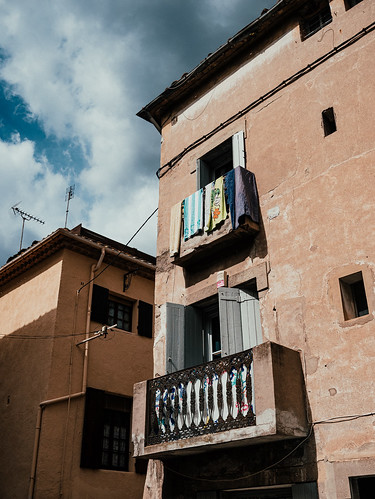Posts by author:
Chris Bertram
I’ve been reading Gospodinov’s Time Shelter (highly recommended), and though I have not finished it yet, it has already made salient a question that I’ve asked myself before, as I suppose others have too: which was the best year to be born? I think my answer, at least for the UK and for the last 100 years, is 1948, ten years before I actually was.
Someone born in 1948 has escaped the risk of being killed by a falling bomb and has had the benefit of Britain’s new National Health Service. They turn 15 in 1963, perhaps “Between the end of the “Chatterley” ban/And the Beatles’ first LP”, and hit 20 in 1968. If they want, they can go to university, and if they do so it will be free and they will get a student grant from the government. But a degree is still not a prerequisite for decent employment and, either way, they will probably, manage to get established with a job and a career. (Women will benefit from the Equal Pay Act of 1970.) They may buy a house that will, allowing for a couple of blips, grow in value and provide the basis for further wealth. They hit 60 just about the time of the Lehman crash, but they can take early retirement with a final salary pension, fully indexed to inflation, so they will be insulated against the stagnant and falling living standards that came later. They are a bit too young to be very seriously at risk of dying in the COVID pandemic and, by the time they get to old to look after themselves, the UK may have sorted out its social care system. And though a person born in 1948 will have started to experience some of the climate crisis, they will certainly escape the disaster that is to come.
[click to continue…]
When journalists write articles about whether countries are free or not, as with this piece in the Financial Times by Martin Wolf about India, they often rely on the ratings from Freedom House. Reading Wolf’s article, my interest was piqued concerning what Freedom House says about the post-Brexit UK, and specifically for the freedoms that it classes as “civil liberties”. Given that one recent major study — Chandran Kukathas’s Immigration and Freedom — makes a compelling argument that immigration restrictions involve extensive restrictions on everyone’s liberty, I was interested to see how this would be reflected both in Freedom House’s criteria and in its use of those criteria in country reports.
First of all then, Freedom House’s methodology. There would seem to be several relevant parts:
F4. Do laws, policies, and practices guarantee equal treatment of various segments of the population?
Do members of such groups face legal and/or de facto discrimination in areas including employment, education, and housing because of their identification with a particular group?
As I’ve discussed before on Crooked Timber, and as is extensively documented by Amelia Gentleman in her book The Windrush Betrayal, the UK’s hostile environment legislation, pioneered by then Home Secretary Theresa May, had the effect of denying to many people, particularly of Caribbean origin, employment, housing and health. Many children born to immigrants in the UK are denied access to higher education because of restrictive nationality laws.
Crooked Timber is twenty years old today, which is an awfully long time for a website, never mind a blog, never mind one that is strictly non-commercial and run on volunteer labour. So here’s to us, and here’s to all those who have been on board at various times during our journey. To quote the Grateful Dead: what a long, strange trip it’s been.
We started the blog shortly after the Iraq war started and in a world that was still shaped by the immediate aftermath of 9/11. A bunch of people who had blogs of their own came together to form our collective after a period of email back-and-forth. It might have been quite a different blog: Norman Geras a strong supporter of the war, had been involved in the emailing, but it became clear that we couldn’t have both him and Dan Davies, so we settled for Dan, and what a good choice that was. Matt Yglesias was invited, but never replied, and has gone on to a rather successful online career.
The initial crew was Chris Bertram, Harry Brighouse, Daniel Davies, Henry Farrell, Maria Farrell, Kieran Healy, Jon Mandle and Brian Weatherson. Four out of nine survivors isn’t bad, but I miss the contributions of those who have moved on, who wrote some of the great posts of the early years. Within a few months we had added Ted Barlow, Eszter Hargittai, John Holbo, John Quiggin, Tom Runnacles, Micah Schwartzman and Belle Waring, and then Ingrid Robeyns and Scott McLemee joined us a couple of years later, followed soon after by Michael Bérubé. By 2008, the Guardian was listing us in its top 50 most powerful blogs, but I think we missed the moment to cash in and become tech zillionaires. Niamh Hardiman became a member around 2011, followed later by Tedra Osell, Eric Rauchway and Corey Robin, then Rich Yeselson. In 2018 we were joined by Serene Khader, Miriam Ronzoni, Gina Schouten and Astra Taylor and then this past year by Chris Armstrong, Elizabeth Anderson, Eric Schliesser, Kevin Munger, Macarena Marey, Paul Segal and Speranta Dumitru. Throughout we tried to keep a mix of people of different experiences, backgrounds, genders and locations, though I’m sure we could have done better. One person, who sadly has left us, deserves special thanks: Kieran Healy was not only an intellectual force behind Crooked Timber, but also, long after he ceased posting, kept us on the road with his technical expertise. The site would have long since fallen over without him.
I’m just back from France, where my direct experience of riots and looting was non-existent, although I had walked past a Montpellier branch of Swarkowski the day before it ceased to be. My indirect experience was quite extensive though, since I watched the talking heads on French TV project their instant analysis onto the unfolding anarchy. Naturally, they discovered that all their existing prejudices were entirely confirmed by events. The act that caused the wave of protests and then wider disorder was the police killing of Nahel Merzouk, 17, one of a succession of such acts of police violence against minorites. Another Arab kid from a poor area. French police kill about three times as many people as the British ones do, though Americans can look away now.
One of the things that makes it difficult for me to write blogs these days is the my growing disgust at the professional opinion-writers who churn out thought about topics they barely understand, coupled with the knowledge that the democratization of that practice, about twenty years ago, merely meant there were more people doing the same. And so it is with opinion writers and micro-bloggers about France, a ritual performance of pre-formed clichés and positions, informed by some half-remembered French history and its literary and filmic representations (Les Misérables, La Haine), and, depending on the flavour you want, some some Huntingtonian clashing or some revolting against structural injustice. Francophone and Anglophone commentators alike, trapped in Herderian fantasies about the nation, see these events as a manifestation of essential Frenchness that tells us something about that Frenchness and where it is heading to next. Rarely, we’ll get a take that makes some comparison to BLM and George Floyd.
[click to continue…]










